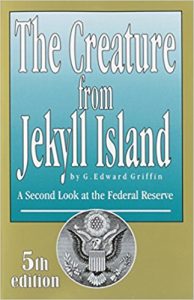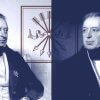In the annals of history, certain events have shaped the course of nations, and the true motivations behind them often lie beneath the surface. One such pivotal moment was America’s entry into World War I, a decision that had far-reaching consequences and was influenced by a complex interplay of interests. In this article, we delve into the revelations provided by Mr. Edward Griffin in his must read book regarding the hidden forces that orchestrated America’s involvement in the war.
The House of Morgan’s Profits from Both Ends
To finance the early stages of World War I, England and France found themselves heavily indebted to American investors. The House of Morgan, acting as their sales agent for bonds and U.S. purchasing agent for war materials, profited immensely. As the war took a turn for the worse for the Allies, the need for the United States to provide financial support became crucial to maintain the Morgan cash flow. A secret agreement between British officials and Colonel House set the stage for bringing America into the war.
Manipulation of Public Opinion
While President Woodrow Wilson campaigned on the slogan “He kept us out of war,” behind the scenes, efforts were underway to manipulate public opinion. Morgan, having gained control over major segments of the news media, orchestrated a nationwide editorial campaign against Germany, framing war as an act of American patriotism. Wilson, despite being aware of the Lusitania’s mission to transport contraband war materials, did nothing to stop it, setting the stage for the tragic sinking of the ship.
The Lusitania and America’s Entry into the War
The sinking of the Lusitania played a crucial role in swaying American sentiment towards entering the war. With Americans on board the ship and the deliberate abandonment of destroyer protection, the British aimed to create the emotional climate necessary to push the United States into the conflict. Within days of the declaration of war, Congress allocated a substantial sum to England and France, with a significant portion flowing into the Morgan account.
The Federal Reserve’s Role and Hidden Tax
To fund the war, the Federal Reserve System created vast quantities of money, leading to inflation as a hidden tax on Americans. Within five years, this tax had eroded half of Americans’ savings. The exorbitant cost in American lives was added to the bill, highlighting the convergence of various motives, including military advantage, profit-seeking, political power, and dreams of global dominance.
The Bolshevik Revolution and Ongoing Geopolitical Strategies
Moving beyond World War I, Mr. Griffin sheds light on the Bolshevik Revolution, depicting it as a coup orchestrated by a radical minority with support from New York financiers. These financiers, driven by profit and power, continued their involvement in the economic development of Russia and Eastern Europe. Griffin suggests that these forces are now working towards a world government, using war and threats of war to shape public perception and advance their goals.
Mr. Edward Griffin’s insights provide a thought-provoking perspective on the hidden forces that shaped America’s entry into World War I and the ongoing geopolitical strategies employed by powerful individuals and entities. Understanding these historical events is essential for a comprehensive view of the forces at play in shaping the world order.




